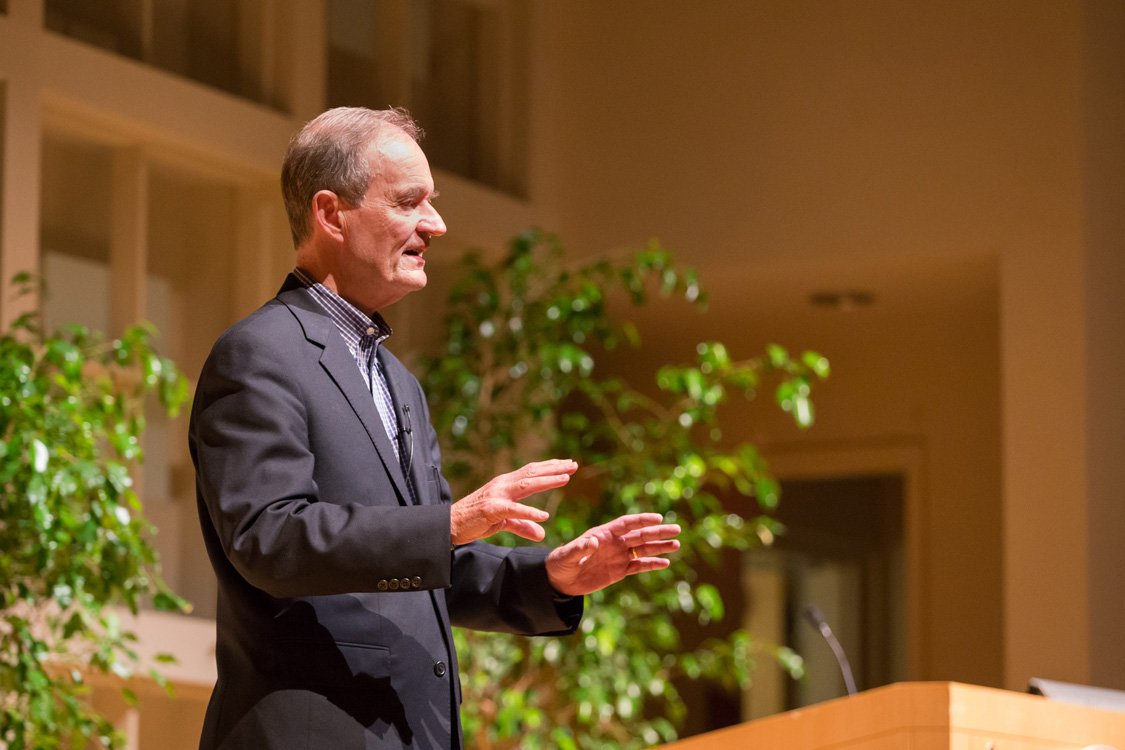David Boies: Law helps to bring about social change
By Ismael Oumzil

David Boies – the litigator who argued for Al Gore in the U.S. Supreme Court’s 2000 election decision case and successfully fought California’s same-sex marriage ban before the Supreme Court in 2008 – addressed alumni, students and staff Oct. 22 about law as a tool for social change. His public talk in Alice Statler Auditorium was the keynote address of the Cornell Trustee-Council Annual Meeting.
Discussing how the confrontational nature of law opens people’s eyes to the realities of a situation, Boies said that when “a human face is put on discrimination, people stop and think about what they are doing to friends, neighbors and sometimes family.”
He related an anecdote from the same-sex marriage case, when an opposing expert witness was cross-examined on his beliefs about marriage.
“He talked about how important it was for children to be raised by a couple that were married because it gave them a sense of security, a sense of belonging … and I said, ‘Do you think that’s true for children who are being raised by a gay couple?’ And he thought about it and he said, ‘Yes,’” Boies said. “So you had from their witness a concession we wanted to prove, which was that not being able to get married was an important discrimination.”
The legal process makes it possible “to make people come forward and answer for their assertions and defend their assertions; [being] subject to cross-examination is a powerful tool for truth,” he said. “That process of both educating people of what the facts are and showing people the face of contradictions helps change people’s minds.”
The power of the witness stand, he said, goes beyond furthering the trial to re-evaluating the opinions in society. Challenging society to reconsider its stance on social issues is exactly the power that Boies believes will allow the practice of law and the court system to combat racial and economic injustices.
“At the time of the Constitution, ‘We the people’ did not mean we the people. ‘We the people’ meant we white, male, Protestant largely, property owners [who] have these rights.” Progress since then, he said, has been partly driven by the law moving more people into “the circle of ‘we the people.’”
Boies said economic rights are fundamental to every person and that he trusts that the next social change will be to move economically disadvantaged people into the ‘we the people’ circle. Where you live and the life you were born into should not dictate your education or your future, Boies said, denouncing the “inheritance of poverty.”
In closing Boies said trials like the 2008 same-sex marriage case are the reason why he studied law, to be a part of and to influence social change – and that with law we can “make our society a better and more inclusive place.”
Ismael Oumzil '17 is a writer intern for the Cornell Chronicle.
Media Contact
Get Cornell news delivered right to your inbox.
Subscribe